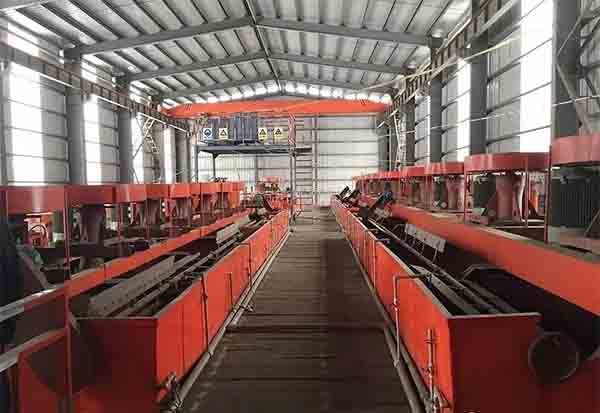Four Major Influencing Factors Of Tin Ore Flotation
Tin minerals have a high density, but are fragile, and are prone to over-crushing in the grinding process, resulting in the loss of most of the fine-grained tin minerals in the tailings. In tin ore recovery, flotation is an effective means to recover fine-grained tin minerals and reduce the loss of tin metal. This article will take you to understand the factors that affect tin ore flotation: pH value, particle-bubble interaction, metal ions, and flotation reagents, to help solve the problem of tin ore recovery.
1. Effect of pH Value on Flotation of Tin Ore
The recovery of tin minerals varies greatly at different pH values. As the pH value increases, the adsorption capacity of tin minerals to collectors changes gradually, and the recovery first increases and then decreases. In the pH range of 3-5, the adsorption of tin minerals to collectors reached its peak. Therefore, controlling the pH value in the range of 3-5 is more suitable for the recovery of fine-grained tin minerals. According to the change in chemical composition, the suitable pH value range may change, which should be determined through a mineral processing test.
2. Effect of Particle-Bubble Interaction on Sn Mineral Flotation
During the adhesion process between the bubbles and the tin minerals, the bubbles and the tin mineral particles approach each other and collide, and the bubbles can only capture the tin mineral particles after multiple collisions. Appropriately reducing the bubble diameter can increase the probability of bubbles colliding with mineral particles, making it easier for fine-grained tin mineral particles to attach to the bubbles, making the mineralization process easier, and improving the recovery of tin minerals.
3. Influence of flotation agent on tin ore flotation
Flotation agents play a key role in the flotation of fine-grained tin ore. Tin minerals have poor natural floatability and high density, so tin ore collectors are required to have stable and selective adsorption, generally, anion collectors, such as fatty acids, phosphonic acids, arsine acids, and hydroxamic acids wait. In order to improve the adaptability of flotation reagents to the flotation of tin minerals, combined reagents are often used for flotation.
Related Products
There are no relevant articles.



